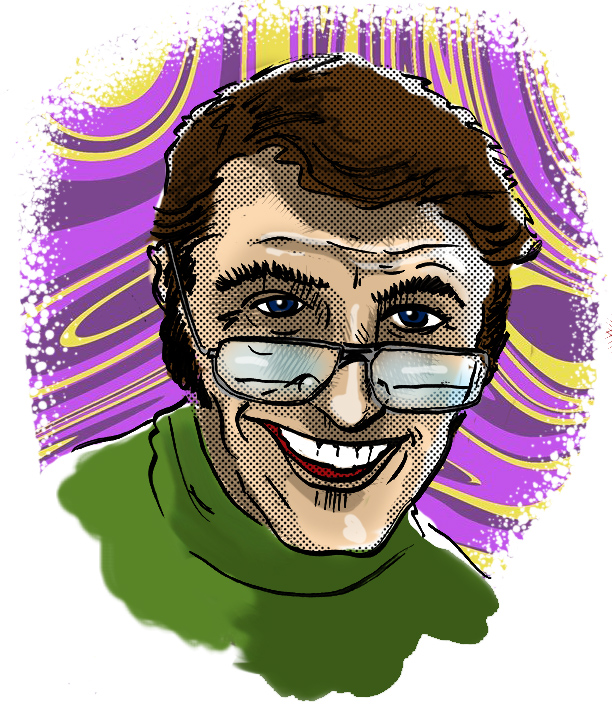
Murray Roman… the man who would be Lenny Bruce.
Murray was a clean-cut observational comedian much in the same vein as George Carlin. And like Carlin, Murray’s act changed when he began dabbling in and experimenting with LSD and marijuana. He managed a few small roles in episodic television, including brief appearances on The Monkees, Batman, That Girl and Rat Patrol. In 1968, he released a comedy album entitled You Can’t Beat People Up and Have Them Say I Love You on Tetragrammaton Records. Tetragrammaton Records was a subsidiary of a production company of which Bill Cosby was a principal partner. The album was a strange amalgam of comedy routines in the style of Lenny Bruce, interspersed with psychedelic music. Murray was able to land a stint on the Pat Boone Show, as Boone also recorded for Tetragrammaton. A fixture on the LA comedy scene, Murray was signed to open shows for The Doors. His comedy album was released through Polydor Records in England. The Who’s Keith Moon became a big fan and supporter of Murray’s.
In 1969, Murray secured a spot on the writing staff of the popular Smothers Brothers Show, alongside such notable writers as Steve Martin, Carl Gottlieb and Bob Einstein. According to his fellow writers, Murray wasn’t much of an actual “writer” per se. He was more of a “talker,” explaining his concepts and having the other writers jot them down. Einstein remembered that Murray idolized Lenny Bruce and lived his life like the controversial comedian.
In late 1969, Murray was featured in 2000 Years Later. The film featured Terry Thomas, Pat Harrington Jr, Edward Everett Horton, Casey Kasem and The Reverend Monti Rock III. It was a typical, nonsensical 60s film that joined the cult status of Otto Preminger’s head-scratcher Skidoo.
Murray’s life was cut short by a car crash that left him in a coma for months. He had been working on a spoof of the Marlon Brando film Last Tango in Paris called Last Foxtrot in Burbank. His costar was Sally Marr, mother of his idol Lenny Bruce. Murray passed away in November 1973 at the age of 43, having never regained consciousness.
